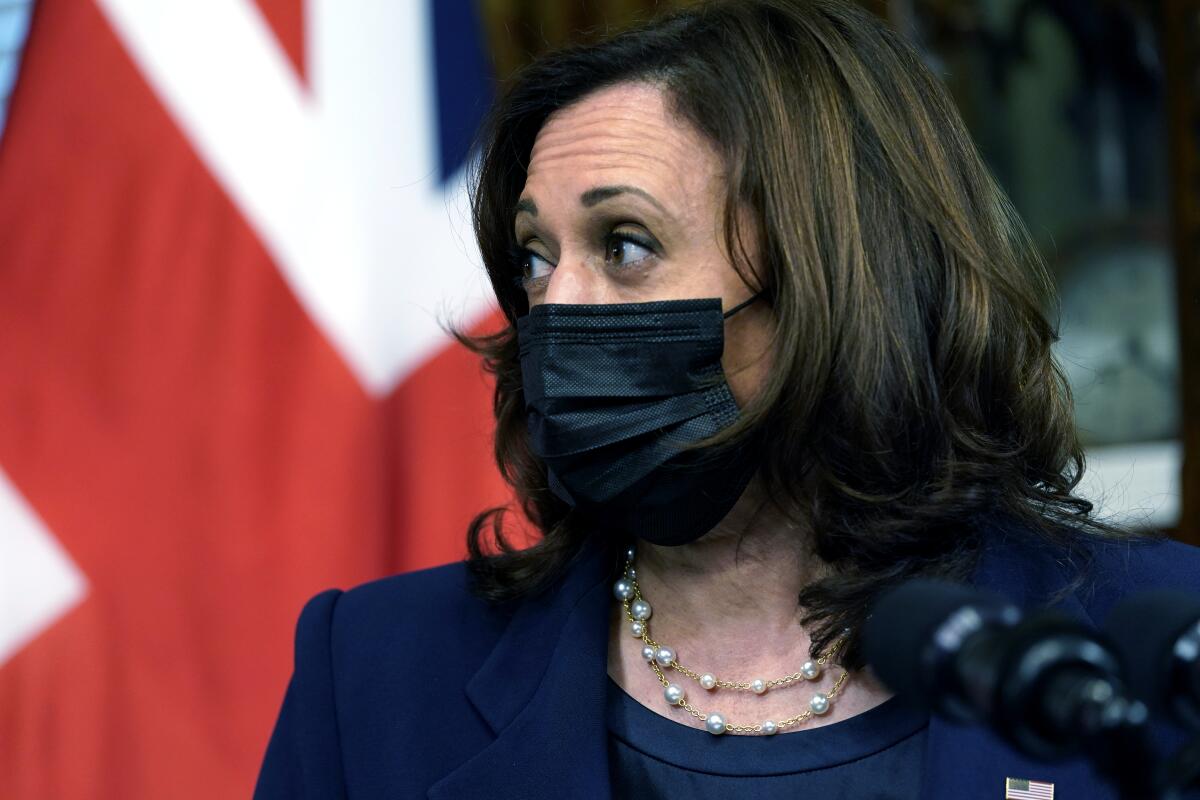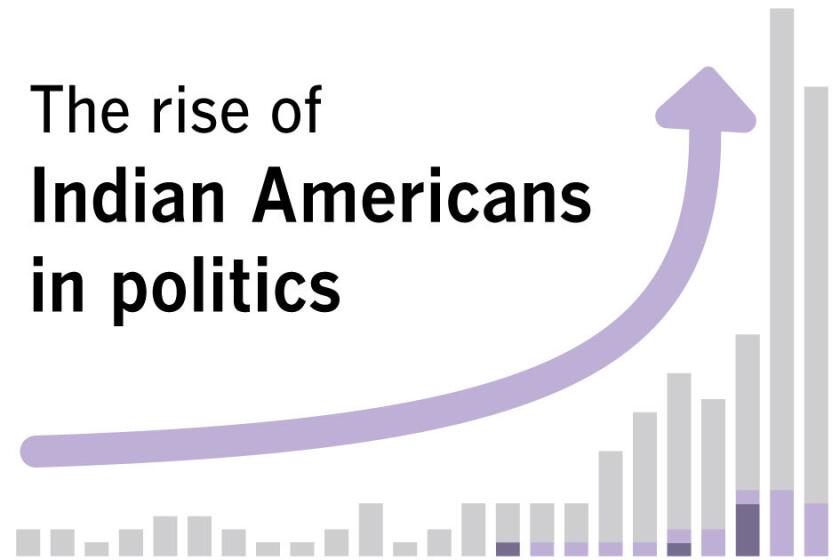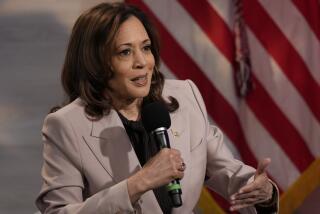Harris to meet with Modi in ‘coming-of-age’ moment for Indian diaspora

- Share via
WASHINGTON — Vice President Kamala Harris plans to meet Thursday afternoon with Indian Prime Minister Narendra Modi, making history as the highest-ranking Indian American to welcome the leader of a country that is becoming one of America’s most important allies.
“It does represent a ‘coming of age’ moment for the diaspora, which is now more than 4 million strong,” Milan Vaishnav, director of the South Asia Program at the Carnegie Endowment for International Peace, said in an email exchange.
The meeting between the leaders comes as the Biden administration moves closer to India and other Asian and Pacific nations, continuing the Trump administration’s focus on responding to China’s growing power by building America’s economic and military ties in the region. Biden will meet with Modi on Friday.
Harris and Biden will also each meet separately on Friday with leaders of the so-called Quad, which includes Japan and Australia, in addition to India.
Harris and Modi will discuss regional issues, including democracy, human rights, climate change, the COVID-19 pandemic and security, according to a senior administration official who would brief reporters only on the condition of anonymity. The two spoke by phone over the summer as India suffered one of the world’s deadliest waves of COVID-19, and Harris met virtually with Modi as part of a Quad meeting in March.
The Indian government is generally pleased with the Biden administration’s emphasis on Asia but is concerned about the chaotic pullout from Afghanistan and how that might affect regional stability and the increased risk of terrorism, Vaishnav said.
Vaishnav said he expects Modi will also bring up immigration and other issues important to Indians who have moved abroad.
Indian Americans are one of the fastest-growing political forces in the United States. Harris, whose mother was born in India, attracted donations, votes and attention from Indian Americans during her political rise to the U.S. Senate and the vice presidency.
Her career, political stances and even the activism of her niece — social media influencer Meena Harris — have been chronicled by the Indian media.
Some Indians and Indian Americans would like to see Harris, whose father was born in Jamaica, identify more closely with her mother’s traditions.
“That’s been a running critique for Harris for a while because she does identify as a Black woman and [went] to [Howard], a historically Black university, and many parts of her identity, including the way her mother raised her, were ensconced in the Black experience,” said Karthick Ramakrishnan, a public policy professor at UC Riverside who has been tracking Indian American public opinion since 2008.
How Kamala Harris and a new generation are changing the face of politics
Ramakrishnan said he believes the meeting will be watched closely by Indian Americans who follow foreign policy, but does not believe it will get the same level of attention in the U.S. or India that was generated by Harris’ selection as Biden’s running mate or her swearing-in; both produced a swell of pride by Indians and Indian Americans on Twitter and Facebook.
Harris’ relationship with India is complex.
Before she became Biden’s running mate, she criticized India’s human rights record, which includes violence and persecution of religious minorities. Those positions have led some in India to hold the mistaken belief that Harris would push harder than Biden for human rights and democratic reforms, said Vaishnav, of the Carnegie Endowment.
“Irrespective of her personal views, they are on the same page as far as government policy goes,” Vaishnav said.
Activists plan to protest Modi’s human rights record outside the White House during Thursday’s meeting.
The Modi meeting is one of several Harris is having this week while many world leaders are in the United States to attend the General Assembly at the United Nations’ New York headquarters.
Harris met with British Prime Minister Boris Johnson, who also met with Biden, on Tuesday. She met Wednesday with the president of Zambia, Hakainde Hichilema, and on Thursday was scheduled to meet with the president of Ghana, Nana Akufo-Addo. She also spoke at a virtual COVID-19 summit with world leaders on Wednesday, leading a session on preparing for future pandemics.
More to Read
Get the L.A. Times Politics newsletter
Deeply reported insights into legislation, politics and policy from Sacramento, Washington and beyond. In your inbox three times per week.
You may occasionally receive promotional content from the Los Angeles Times.












